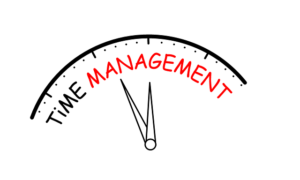Getting off on the right floor and setting high standards is important for a business, but it’s equally important to maintain those standards. How many businesses have seen let their service quality slip and lose customers?
It’s a lot easier to maintain customer loyalty than win it back after a bad experience. This is why all long-term businesses must do occasional self-inventories to make sure they’re living up to the standards they’ve set for themselves.
“What is your company’s biggest selling point? What message do you want to send to your customers? There are several ways to ensure your business standards stay as high as they were the day you opened. ”
Conduct Regular Training
If you’re a long-term business, the odds are you have quite a few employees. You may have a good amount of turnover. That means it’s critical to ensure every employee gets the same level of training that your day-one employees did and can bring the same level of quality performance to the company. For those long-term employees, regular training seminars can be helpful as well to make sure they keep up with all the latest practices.
Make sure your employees know what to expect before training. If you schedule seminars regularly, post them well in advance. You and your team may not always be the best equipped to teach any given topic, so don’t be afraid to bring in-field experts from other areas to support your team. This is especially important in any highly technical field like cybersecurity or digital marketing, where older employees might not have current experience.
Remain Properly Insured
You’ll want to be properly insured before you open your doors, but it’s just as important to keep up on your premiums year after year. As you build your company up, you have a greater investment, but this can still all be undone by one mistake or a costly lawsuit that leaves you tied up in court for years. Make sure to consult with attorneys and accountants to determine your liabilities so you can choose which insurance policies to invest in.
One area where you should never do without is workers’ compensation insurance. Not only is this insurance legally mandated for almost all businesses in almost all states, but it protects you and your employees should one of them be injured at work. This policy will cover their medical and associated costs and protect you from liability, but make sure to examine your workplace carefully before it’s needed to remove any safety hazards.
Keep Product Quality High
If you’re selling a product, be it an expensive electronic or a delicious dessert, your customers will notice if the quality of the product slips. There are many reasons that a product could fail to live up to the standard the customer expects. It might be that the raw materials available decrease in quality or aren’t readily available, or the business tries to save money by going with an outside contractor for manufacturing.
It might be tempting to cut costs this way, but it can be very easy to lose the customer’s faith if product quality decreases. It may be worth it to increase the costs slightly if loyal customers know they’re getting the same level of quality product as always. Sometimes changes are inevitable because certain items become unavailable. The best way to handle unavoidable changes is to be transparent and let customers know about the changes as early as possible.
Review Work Regularly
Everyone dreads the annual performance review—for employees, it often feels like taking that school report card home at the end of the semester. It’s not great for bosses either because they have to address a year’s worth of problems in a single go. Business owners are busy, but it’s worth the investment in time to check in with employees regularly to address any minor problems in work performance as they happen.
Every employee prefers to receive feedback differently, but make sure always to include some constructive feedback. It also helps to have options to help employees who are struggling, like offering specialized training. The focus should always be on customer experience, so consider their feedback when making new policies and tracking long-term performance.
Stay on the Path
Starting strong is only half the battle. It’s easy to let quality slip as the company moves on and jobs change hands. But with these simple tips, you’ll be able to maintain a reputation of quality many years into your presence in the market.










